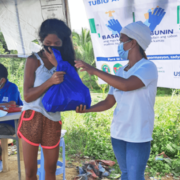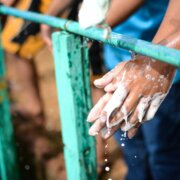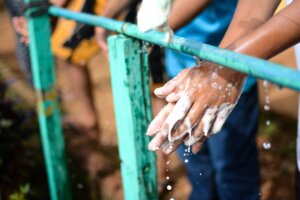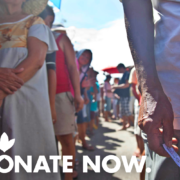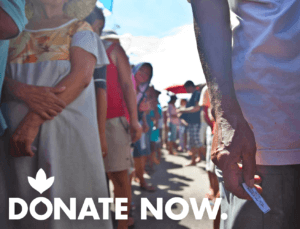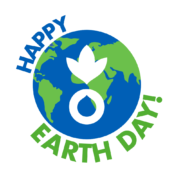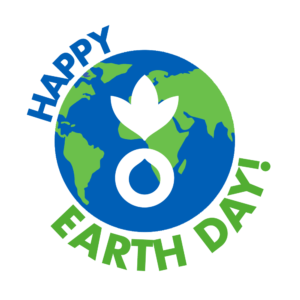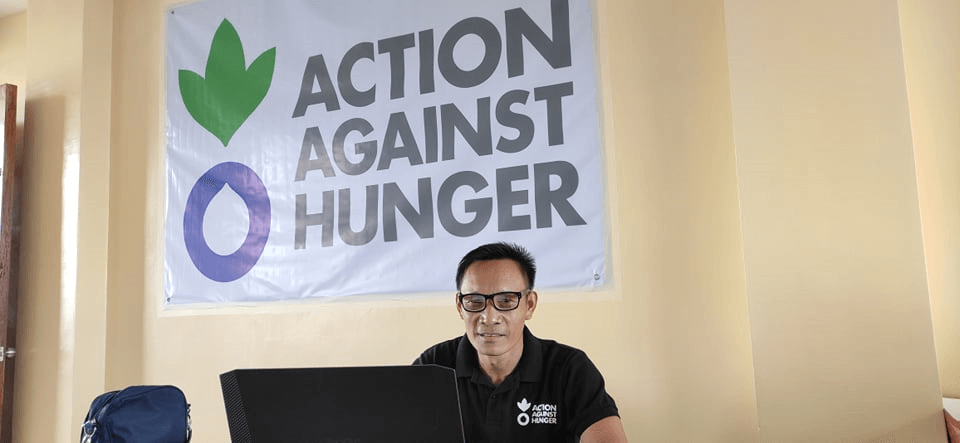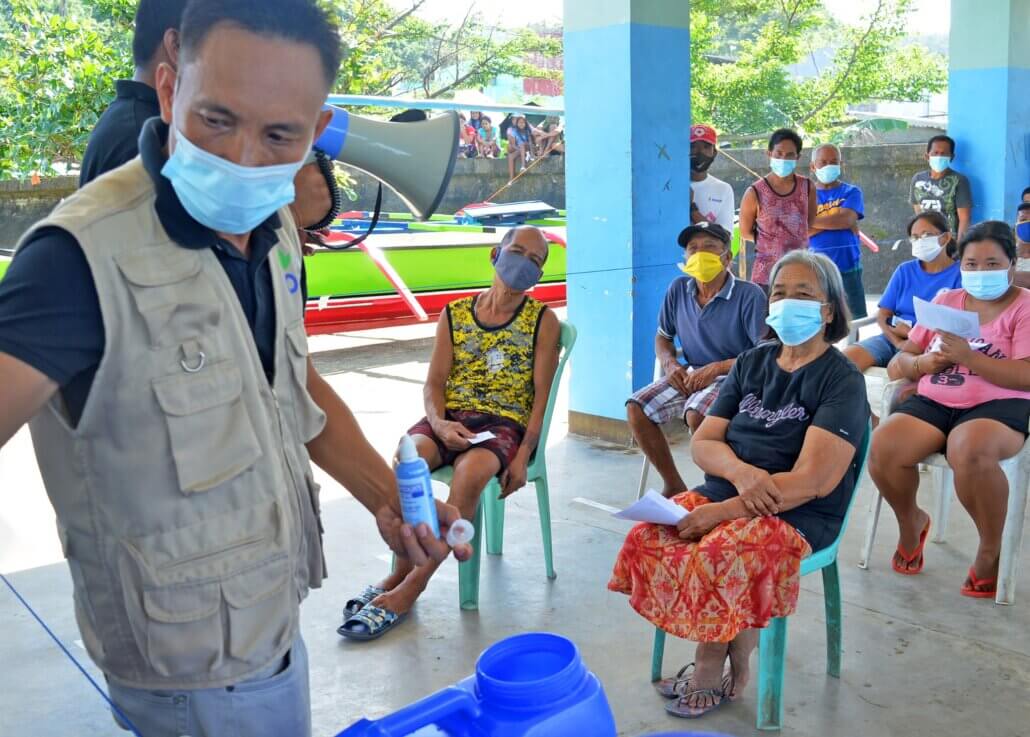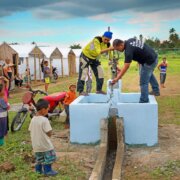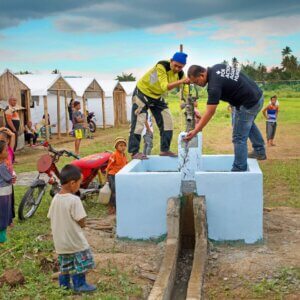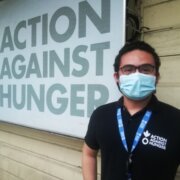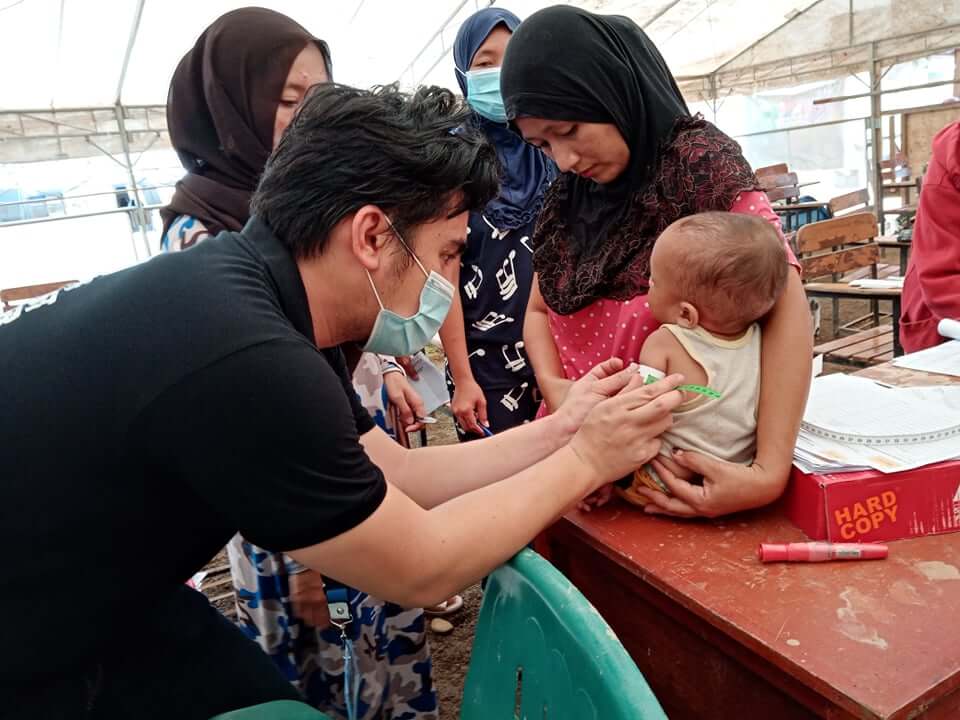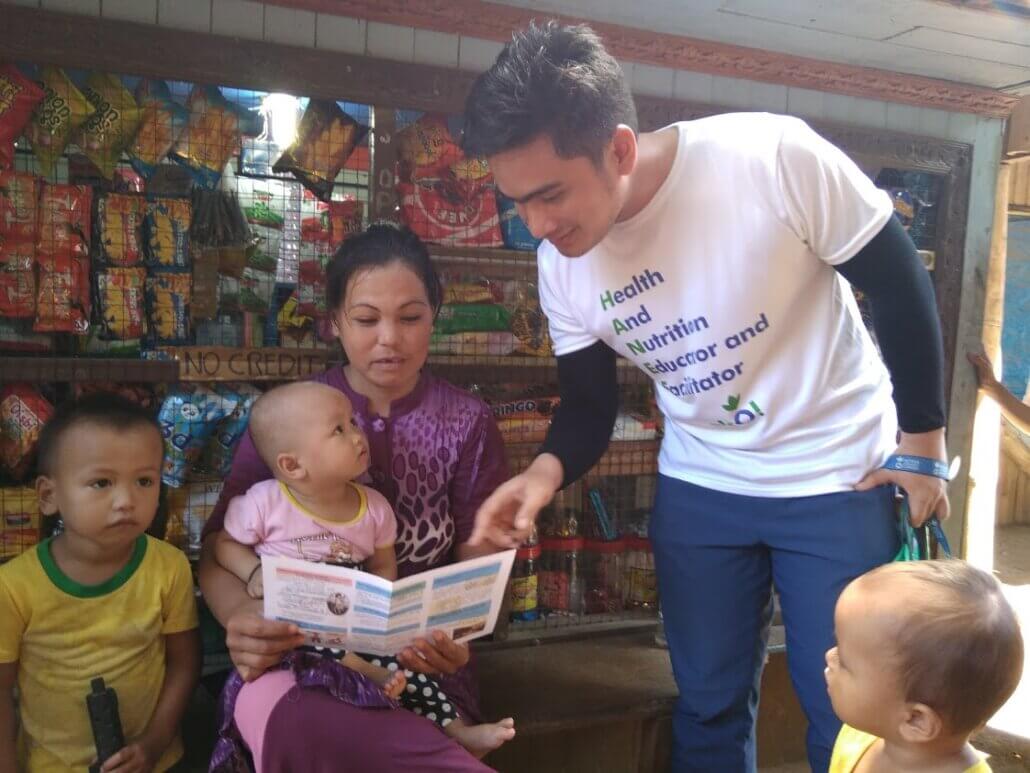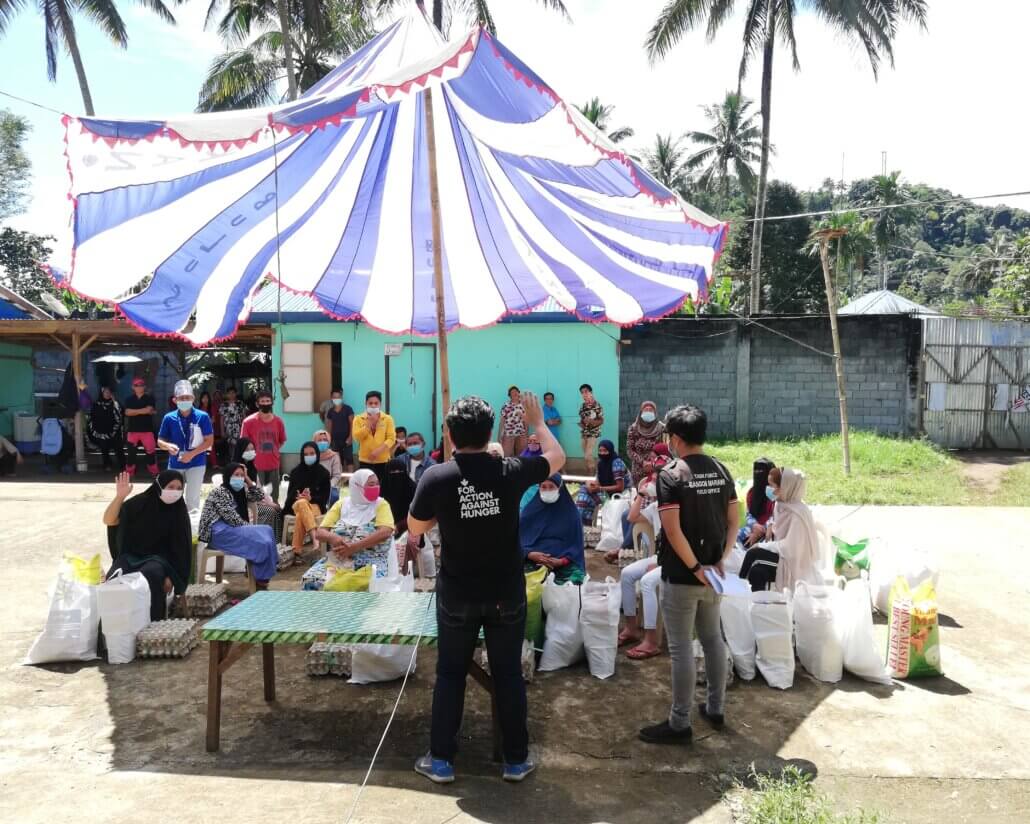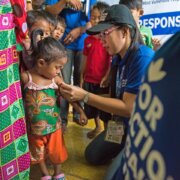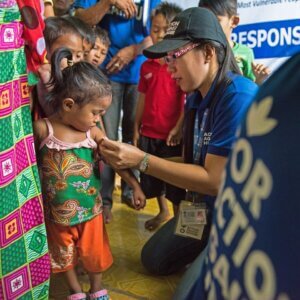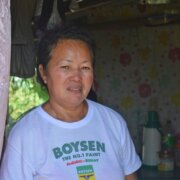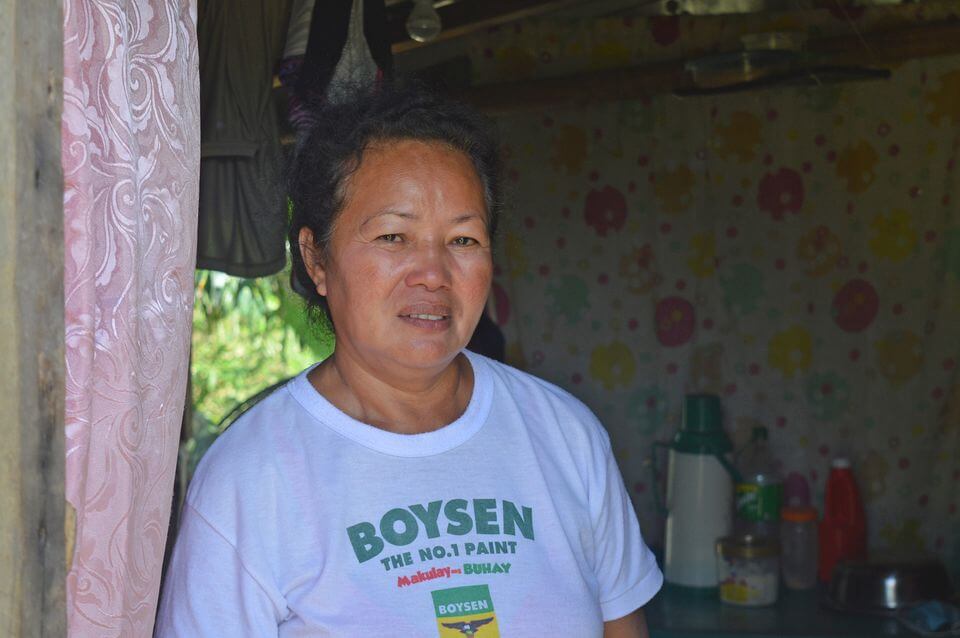Health Volunteer Saves Allowance to Support Family
The onset of the global pandemic severely affected displaced communities brought by earthquakes in North Cotabato. They become more vulnerable as their mobility has been limited and opportunities to earn a living and provide for their basic needs have been hampered harshly. Their already limited capacities were further impeded by health official’s implementation of lockdowns, curfew, and disallowing of social gatherings. This situation is extremely difficult for the people living in the evacuation centers and camps for internally displaced persons (IDPs) in the North Cotabato Province.
Joan Bayawan, 27, a mother of one, residing in the Barangay Ilomavis, City of Kidapawan, Province of Cotabato was one of those severely affected by both the Mindanao earthquakes and the COVID 19 pandemic. Her barangay was greatly hit by a series of strong magnitude earthquakes that devastated the province during 16th, 29th, and 31st of October 2019. After being displaced for more than a year following the disaster, Joan and her family thought they would slowly regain economic security, and little by little find way back to their normal life. Unfortunately, everything blushed off as COVID-19 pandemic deeply affected their livelihood, causing them poor access to basic social services such as health and nutrition, education, transportation, and information.
Despite having been affected by the Earthquake and the negative impact of COVID-19 pandemic, Joan became one of Action Against Hunger’s health volunteers in their barangay. She was among the trained water, sanitation and hygiene (WASH) committee members who underwent Risk Communication and Community Engagement (RCCE) training conducted by Action Against Hunger on August 8, 2020 in Kidapawan City under the project “COVID-19 Emergency WASH Assistance to Conflict and Earthquake Affected Communities in Mindanao.” Since then, Joan and her colleagues have been conducting regular health and hygiene messages, demonstrate hygiene promotion activities, and communicated updates to the project team.
Because of her dedication, enthusiasm, and willingness to help her community, Joan was able to play a significant role in helping earthquake affected communities prevent the spread of the life-threatening disease.
In recognition of the effort and time spent, Joan and her fellow volunteers were given support through cash and in-kind incentives for their rendered hours. As a volunteer, she received an allowance amounting to $62.78 (PhP 3,150.00) for 10 working days—$ 6.2 (PHP 315) per day based on the minimum wage in North Cotabato. This amount was also allocated for phone credits to update the project on its progress, to provide feedback from the communities and to communicate changing local situations from their respective areas.
“I am very happy with the allowance I received. Aside from the fact that this amount should be used for communication and reporting, whatever amount I save in excess is very useful. This is really a big help for me and my families’ finances supporting our daily needs. It is hard for us to find resources because of COVID restrictions and protocols,” said Joan.
Not only was Joan able to support her community by raising awareness and educating them about COVID-19, her volunteer stint also somewhat serves as a much-needed temporary employment for Joan, providing income as well as appropriate social protection. Her activities for the project also prevented Joan and her family from resorting to negative coping mechanisms due to the hardship brought by two calamitous events in the province.
Joan’s family was also among the 6,350 families that received non-food items (NFIs), hygiene kits, and received direct hygiene promotion sessions in North Cotabato.
The COVID-19 Emergency WASH Assistance to Conflict and Earthquake Affected Communities in Mindanao was a nine-month emergency response project which aimed to support 151,081 individuals from conflict and earthquake – affected populations across the province of Lanao Del Sur, Maguindanao, and province of Cotabato. The project was implemented by Action Against Hunger, Philippine Business for Social Progress (PBSP), and CARE Philippines, and funded by Bureau of Humanitarian Affairs (BHA) of the United States Agency for International Aid (USAID). ●


